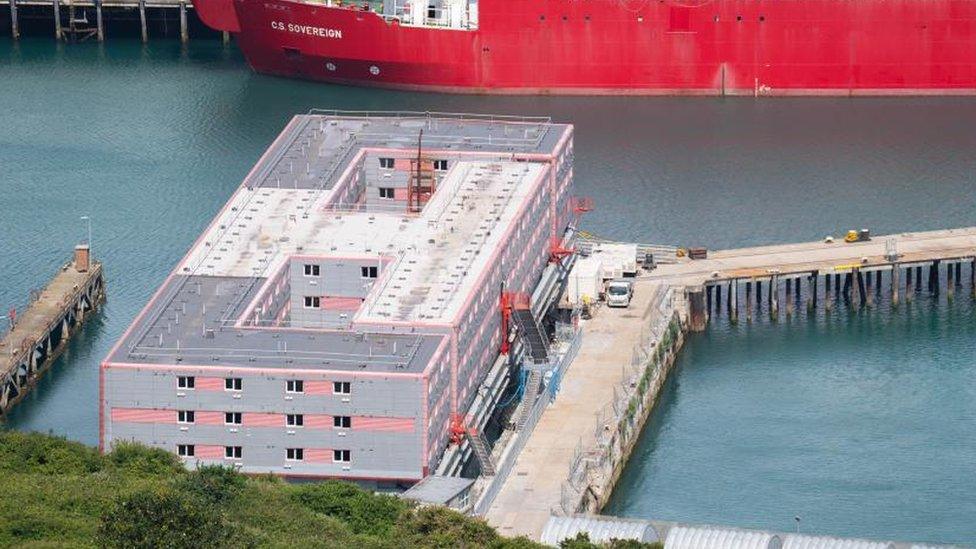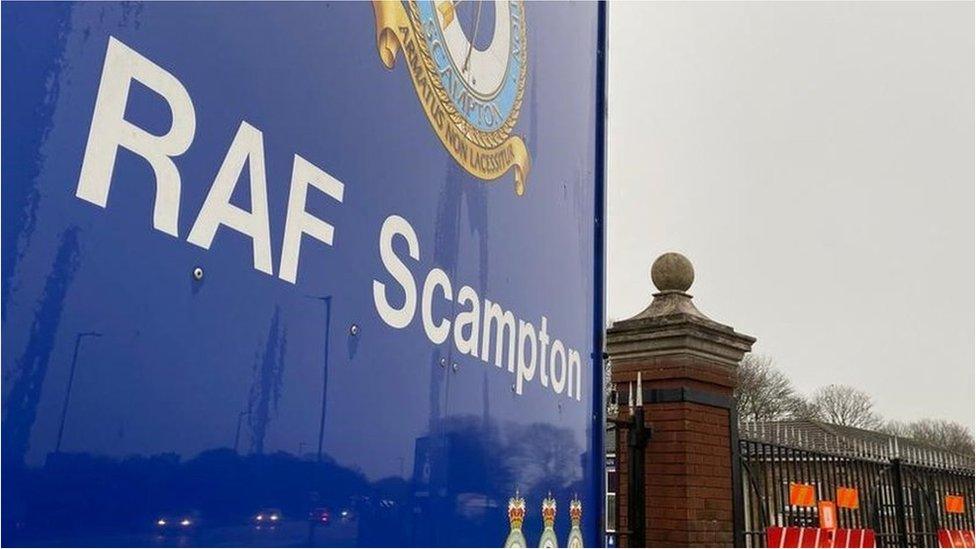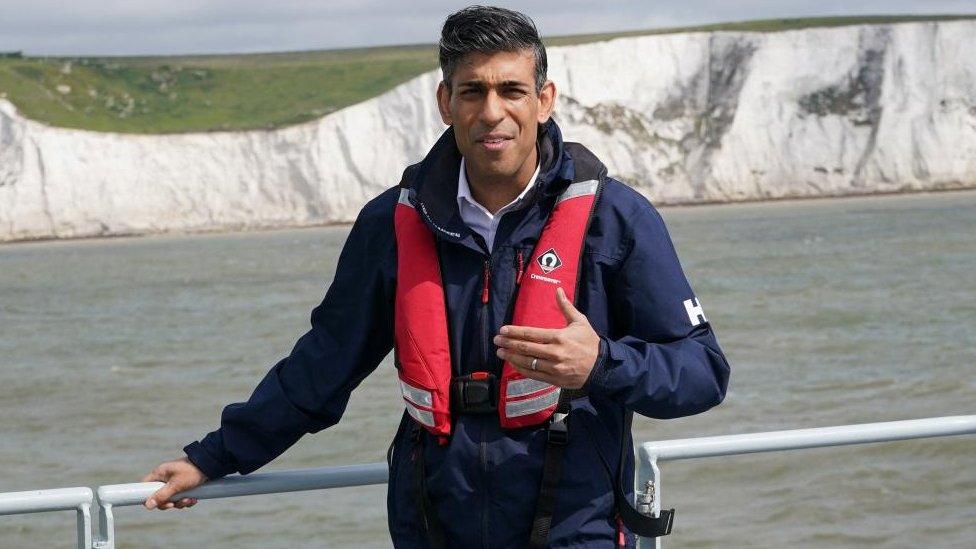UK foreign aid spending on asylum seekers rises again
- Published

The Home Office spent about £2.9bn of foreign aid funds last year, mostly on housing asylum seekers in the UK
More than a quarter of all UK overseas aid was spent on asylum costs at home last year, new figures show.
The Foreign Office statistics reveal £4.3bn of its foreign aid budget went on supporting refugees and asylum seekers in the UK.
That represents a 16% increase from the £3.7bn that was spent in 2022.
The government said it had spent £15bn on development last year, including on humanitarian aid in Gaza and had had doubled spending in poorer countries.
But critics say the government has "lost its grip" by allowing the Home Office to use UK foreign aid budgets, weakening crisis prevention schemes.
Labour's shadow international development minister Lisa Nandy said it "beggars belief" that the government was using the overseas aid budget to "bail out their failing asylum system with a blank cheque".
She said: "This is sticking plaster politics at its worst, terrible value for money for British taxpayers and is no way to run the development budget or the Home Office."
Under current aid rules, the government can spend overseas assistance on what are called "in donor refugee costs" for the first year that an asylum seeker is in the UK.
Charities and the government's aid watchdog criticised ministers for allowing aid spending to rise in the UK at the expense of helping the poorest people overseas.
Much of the £4.3bn is spent by the Home Office (about £2.9bn), mostly on housing for asylum seekers. The rest covers education, health and other social needs.
The UK's overall aid budget in 2023 had risen by £2.6bn since the previous year, taking the total to £15.4bn, data published by the Foreign and Commonwealth Development Office (FCDO) showed.
However, less money was spent on the FCDO's overseas bilateral aid commitments - £4.1bn - than on asylum seekers in the UK, the same data showed.
And the UK's bilateral spending on humanitarian assistance fell from £1.1bn in 2022 to £888m in 2023.

Humanitarian aid falls through the sky towards the Gaza Strip after being dropped from an aircraft
The official watchdog of government aid spending, the Independent Commission for Aid Impact (ICAI), said it had continuing concerns about value for money and allowing the Home Office to spend "an unlimited amount" on hosting asylum seekers at the expense of the FCDO's budget is "cutting across the normal lines of accountability".
Tamsyn Barton, the ICAI's chief commissioner, added: "What's more, using so much of the aid budget on UK asylum hotels, rather than on supporting people nearer home, is inequitable and inefficient."
A government spokesperson said the UK had spent £15bn on development last year, including on humanitarian aid in Gaza.
"We are also nearly doubling our spend in low-income countries this financial year," they added.
"Last year's budget was boosted by additional funding to support refugees in the UK, who have escaped oppression and conflict overseas, including from Ukraine and Afghanistan.
"We will continue to ensure our aid budget delivers value for money for British taxpayers."
Separately, Home Secretary James Cleverly has announced about 150 asylum seeker hotels will close by May and the closure process will continue "until the last hotel is closed".
The Home Office spent about £8m every day last year on such accommodation, with more than 56,000 asylum seekers in hotels at the end of September and about 36,000 now.
Labour's shadow immigration minister Stephen Kinnock accused the home secretary of "celebrating failure" over "asylum chaos".
"So-called 'asylum hotels' didn't exist before the Tories lost control of the asylum backlog, and Rishi Sunak promised to end them by the end of 2023," he said.
He said a Labour government would create a new cross-border police unit in partnership with Europol to "smash the criminal smuggler gangs" and introduce a new returns unit that would "remove people with no right to be here".
Related topics
- Published20 March 2024

- Published19 March 2024

- Published3 January 2024
